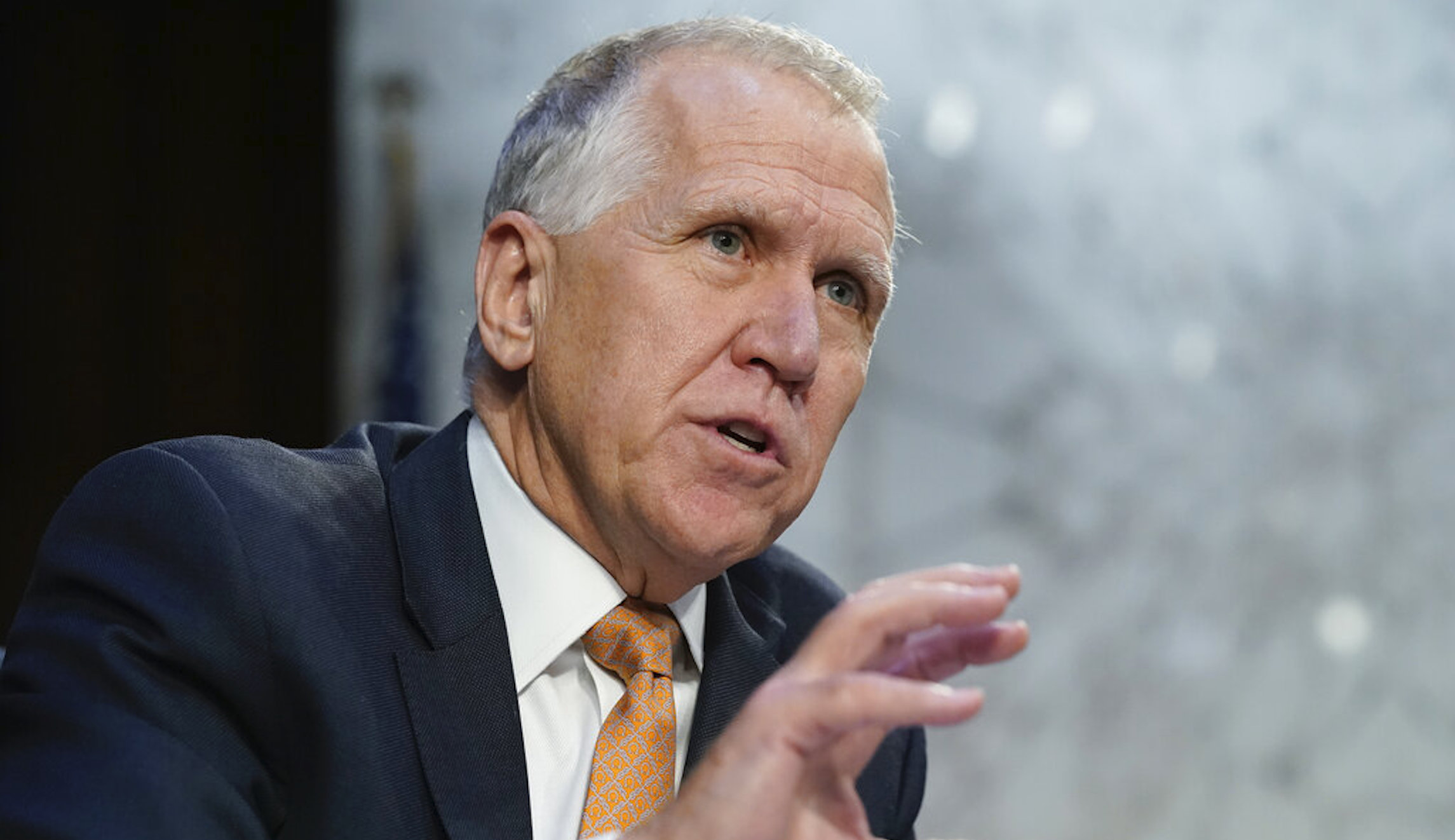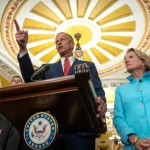

Sen. Thom Tillis (R-NC), an influential member of the Senate Committee on Finance, trashed the bipartisan child tax credit and business tax bill on Friday and said he hopes it never comes to a vote.
The bill in question passed the House in a 357-70 vote but is facing an uphill battle in the Senate, where Republican lawmakers have been more critical. Leadership has not decided whether to hold a markup of the legislation in the Finance Committee or hold a floor vote.
“If it died, I’d be happy,” Tillis said in an interview with the Washington Examiner.
Tillis has complaints about several facets of the $78 billion legislation and said that, after a discussion with other members of the Finance Committee, he thinks other Republicans share his point of view. He said the only way it would become workable is if it is significantly changed in markup and that, as it stands, he is “going to fight to make sure every single Republican member is opposed to it.”
Tillis said the likelihood of the legislation passing has been shrinking as this week has gone by.
“I think it has failed to achieve orbit,” Tillis said. “And I want it to come crashing back down.”
A senior aide with knowledge of the negotiations said the bill’s advancement was in peril.
“House members haven’t yet fully appreciated the single-digit chances that this bill is passed or even considered by the Senate — and the significant changes that will be needed at the committee level before it even gets to that point,” the aide told the Washington Examiner.
Chief among Tillis’s concerns is the provision in the bill that is meant to pay for the tax cuts.
The bill is meant to be paid for through changes to the pandemic-era employee retention tax credit, or ERC. It would add stronger enforcement and penalties tied to fraudulent ERC claims and would bring an early end to the processing of claims.
The Joint Committee on Taxation, Congress’s in-house tax scorekeeper, estimates that the ERC changes would result in just over $77 billion in savings, making the overall bill deficit-neutral. But some Senate Republicans, such as Tillis, think the provision is deceptive because it is merely dialing back a pandemic-era program that was already adding to the debt.
“How in the hell can you have as a pay-for a COVID-era program in the Employee Retention Tax credit that didn’t have a pay-for,” Tills said, noting that the program ended up costing much more than anticipated and is rife with fraud.
“Hey, here’s a hint: We ought to go after those fraudulent payments and then put it back into the Treasury,” he said. “It’s just a gimmick.”
The legislation would allow parents to rely on the prior year’s income to calculate the child tax credit for this year and next. Some conservative groups and lawmakers have argued that the provision would lead some parents to quit the workforce in some years, although supporters of the legislation have pushed back on the notion, calling it a red herring.
Further complicating matters is that it is an election year. One member of the Finance Committee, Sen. Chuck Grassley (R-IA), argued that expanding the child tax credit during an election year could help President Joe Biden’s chances of staying in office. Biden has already endorsed the legislation, complicating the politics surrounding the legislation.
“Passing a tax bill that makes the president look good, mailing out checks before the election, means he could be reelected, and then we won’t extend the 2017 tax cuts,” Grassley told reporters.
Still, even if the bill fails in the Senate, the overwhelmingly bipartisan passage of the tax package is an election-year legislative win for House Ways and Means Chairman Jason Smith (R-MO), who negotiated the legislation directly with Senate Finance Committee Chairman Ron Wyden (D-OR).
Besides expanding the child tax credit, the legislation contains several business provisions. It would extend two major tax deductions for investment that were included in the 2017 GOP tax overhaul but have since expired. Reinstating the write-offs is a priority for the corporate world.
CLICK HERE TO READ MORE FROM THE WASHINGTON EXAMINER
Tillis said he hopes Congress can take the “transformational” expired tax provisions and extend them next year. But he said he does not think the bill, in its current form, will be a palatable way to do so for Senate Republicans.
“You want to talk about a child tax credit bill that’s coming together with tax extenders for basically everything that we did in [the 2017 tax bill]?” Tillis said. “I’ll talk about that, and we’ll figure out a way to pay for it. But not this half-baked, and I say baked charitably, idea.”







